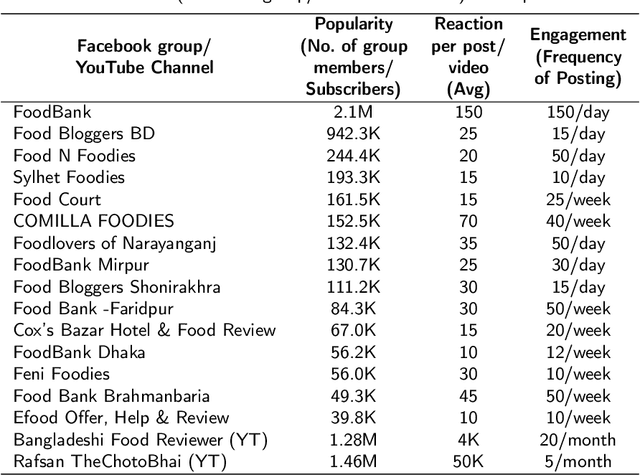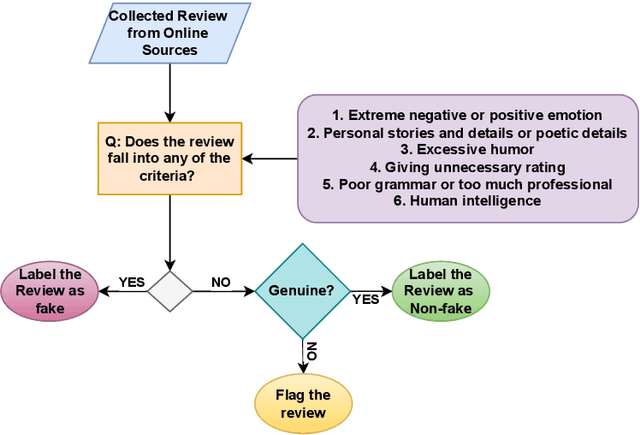Md. Shahriar Mahbub
Bengali Fake Reviews: A Benchmark Dataset and Detection System
Aug 03, 2023



Abstract:The proliferation of fake reviews on various online platforms has created a major concern for both consumers and businesses. Such reviews can deceive customers and cause damage to the reputation of products or services, making it crucial to identify them. Although the detection of fake reviews has been extensively studied in English language, detecting fake reviews in non-English languages such as Bengali is still a relatively unexplored research area. This paper introduces the Bengali Fake Review Detection (BFRD) dataset, the first publicly available dataset for identifying fake reviews in Bengali. The dataset consists of 7710 non-fake and 1339 fake food-related reviews collected from social media posts. To convert non-Bengali words in a review, a unique pipeline has been proposed that translates English words to their corresponding Bengali meaning and also back transliterates Romanized Bengali to Bengali. We have conducted rigorous experimentation using multiple deep learning and pre-trained transformer language models to develop a reliable detection system. Finally, we propose a weighted ensemble model that combines four pre-trained transformers: BanglaBERT, BanglaBERT Base, BanglaBERT Large, and BanglaBERT Generator . According to the experiment results, the proposed ensemble model obtained a weighted F1-score of 0.9843 on 13390 reviews, including 1339 actual fake reviews and 5356 augmented fake reviews generated with the nlpaug library. The remaining 6695 reviews were randomly selected from the 7710 non-fake instances. The model achieved a 0.9558 weighted F1-score when the fake reviews were augmented using the bnaug library.
Bengali Fake Review Detection using Semi-supervised Generative Adversarial Networks
Apr 05, 2023



Abstract:This paper investigates the potential of semi-supervised Generative Adversarial Networks (GANs) to fine-tune pretrained language models in order to classify Bengali fake reviews from real reviews with a few annotated data. With the rise of social media and e-commerce, the ability to detect fake or deceptive reviews is becoming increasingly important in order to protect consumers from being misled by false information. Any machine learning model will have trouble identifying a fake review, especially for a low resource language like Bengali. We have demonstrated that the proposed semi-supervised GAN-LM architecture (generative adversarial network on top of a pretrained language model) is a viable solution in classifying Bengali fake reviews as the experimental results suggest that even with only 1024 annotated samples, BanglaBERT with semi-supervised GAN (SSGAN) achieved an accuracy of 83.59% and a f1-score of 84.89% outperforming other pretrained language models - BanglaBERT generator, Bangla BERT Base and Bangla-Electra by almost 3%, 4% and 10% respectively in terms of accuracy. The experiments were conducted on a manually labeled food review dataset consisting of total 6014 real and fake reviews collected from various social media groups. Researchers that are experiencing difficulty recognizing not just fake reviews but other classification issues owing to a lack of labeled data may find a solution in our proposed methodology.
 Add to Chrome
Add to Chrome Add to Firefox
Add to Firefox Add to Edge
Add to Edge